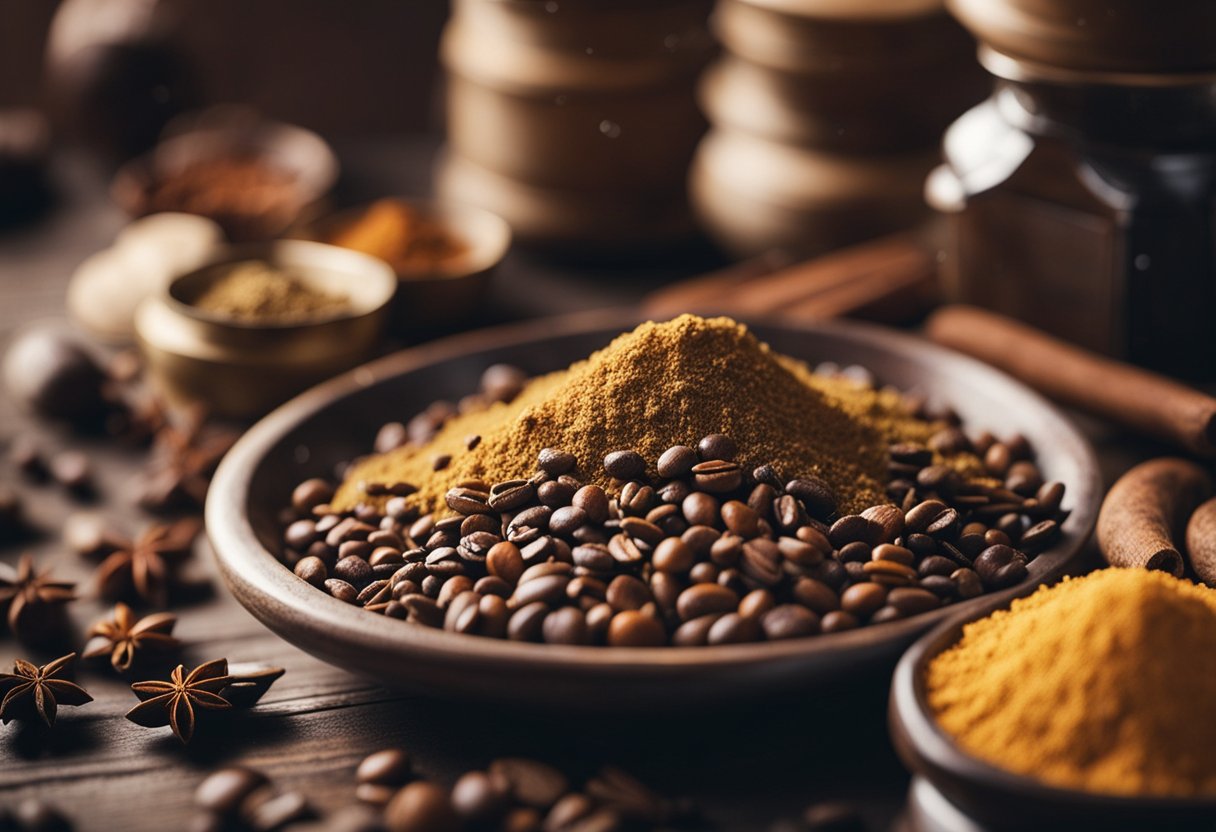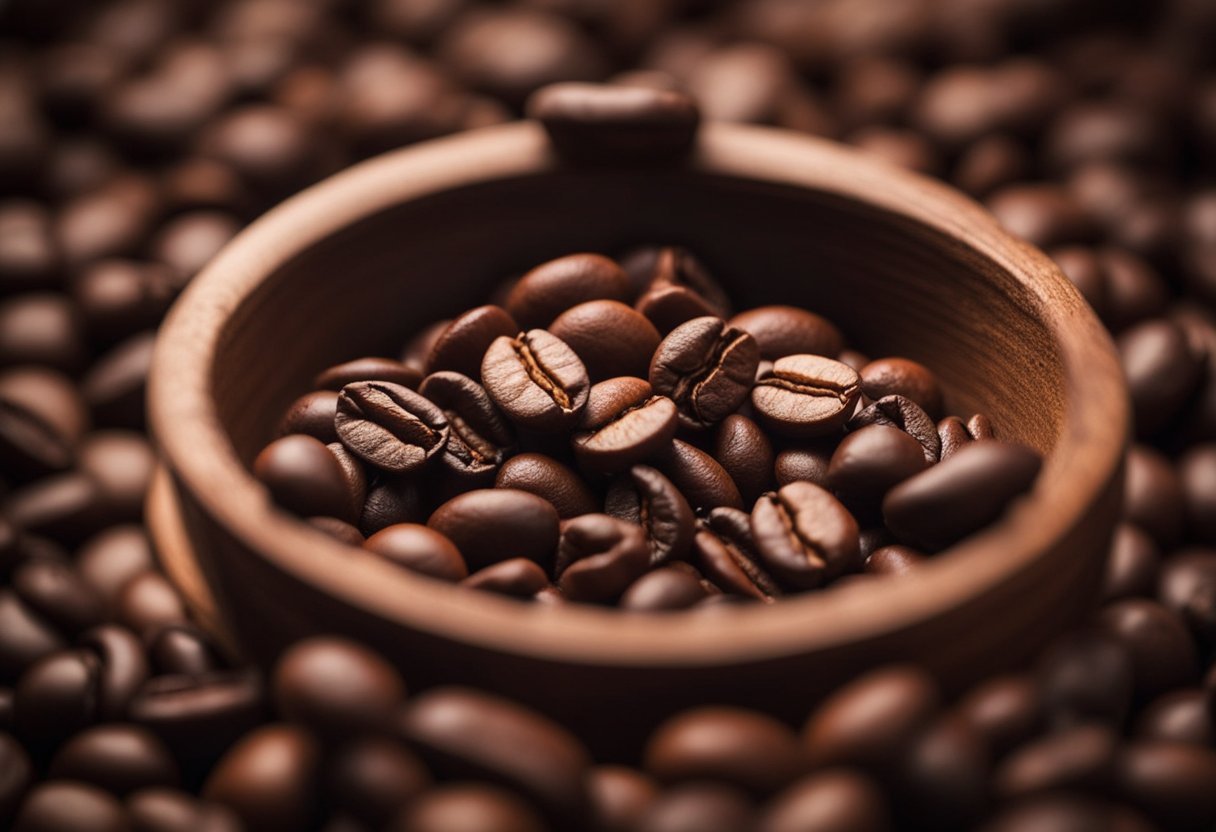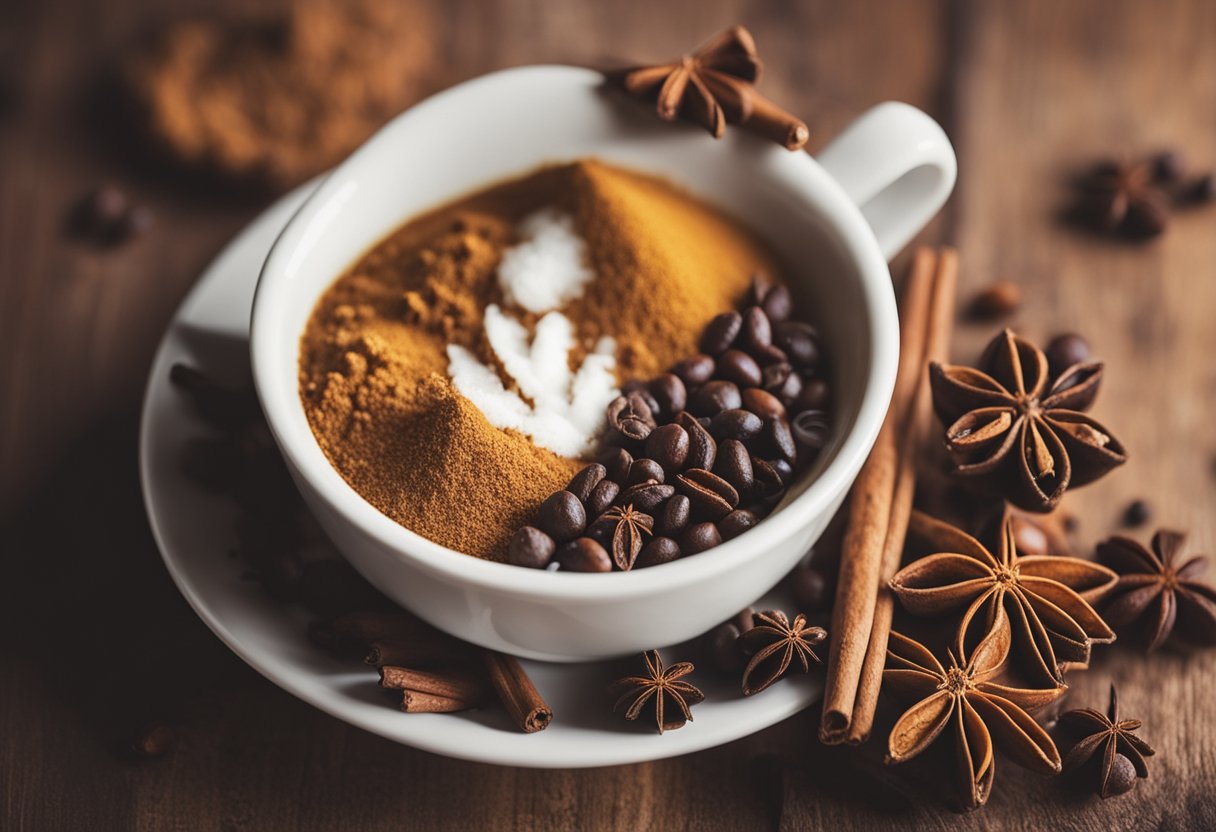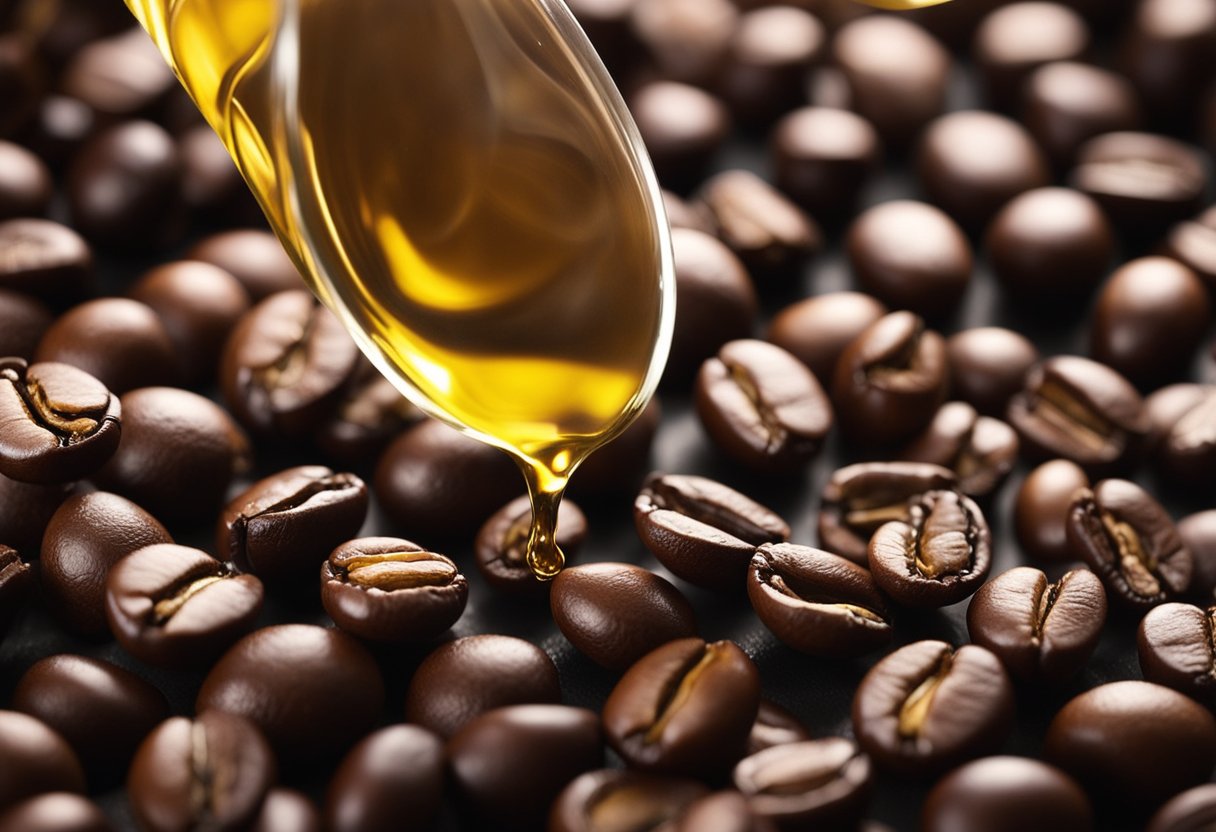1-800-982-4730
1-800-982-4730
Flavoring coffee is a great way to add some excitement to your morning cup of joe. While there are many flavored coffee options available, they often contain artificial ingredients and added sugars. Fortunately, there are plenty of natural ways to flavor coffee that are both healthy and delicious.

One of the simplest ways to flavor coffee naturally is to add spices to the coffee grounds before brewing. Spices like cinnamon, nutmeg, and cardamom add warmth and depth to coffee, while ginger and turmeric provide a spicy kick. Another option is to use extracts like vanilla or almond, which can be added to brewed coffee for a subtle yet flavorful twist.
For those with a sweet tooth, natural sweeteners like honey, maple syrup, and coconut sugar are great alternatives to refined sugar. Additionally, adding a small amount of unsweetened cocoa powder or a few drops of peppermint oil can transform your coffee into a decadent treat. With so many natural options available, there's no need to settle for boring, plain coffee.

Coffee flavoring is the process of adding natural or artificial flavors to coffee to enhance its taste. Coffee is known for its unique and complex flavor profile, which includes notes of bitterness, acidity, sweetness, and aroma. Adding flavor to coffee can be a great way to customize your cup and make it taste exactly how you want it to.
There are many ways to flavor coffee, including adding flavor extracts, flavoring oils, or natural flavors to coffee beans before brewing. Flavored coffees are also available, which are pre-flavored with various flavors like vanilla, hazelnut, or chocolate.
When it comes to flavoring coffee, it's important to use high-quality ingredients to ensure that the flavor is natural and authentic. Flavor extracts and flavoring oils are a popular choice for flavoring coffee since they are concentrated and can be easily added to coffee in small amounts. Natural flavors like spices and herbs can also be used to flavor coffee, but they may require more experimentation to get the right balance of flavors.
Coffee flavoring oils are made by extracting the essential oils from various natural ingredients like vanilla beans, cinnamon, or peppermint. These oils can be added to coffee to enhance its flavor and aroma. However, it's important to use high-quality oils that are specifically designed for coffee flavoring to ensure that the flavor is natural and authentic.
Flavoring coffee beans is another way to add flavor to coffee. This involves adding natural flavors like spices or herbs to coffee beans before they are roasted. This method can be a bit more challenging since the flavors can easily be lost during the roasting process. However, it can be a great way to create unique and customized flavors that are not available in pre-flavored coffees.
Overall, understanding coffee flavoring is important if you want to create customized and delicious cups of coffee. Whether you choose to use flavor extracts, flavoring oils, or natural flavors, it's important to use high-quality ingredients and experiment until you find the perfect balance of flavors.

When it comes to flavoring coffee naturally, sweeteners are the most commonly used ingredients. Here are some natural sweeteners that can be used to sweeten your coffee without the need for refined sugar.
While sugar is the most commonly used sweetener, it's not the healthiest option. Brown sugar is a raw form of sugar that is less processed than white sugar and contains some minerals. However, it's still high in calories and can cause a spike in blood sugar levels.
Honey is a natural sweetener that has been used for centuries. It's sweeter than sugar and has a distinct flavor that can enhance the taste of coffee. Stevia is a zero-calorie sweetener that comes from the leaves of the Stevia plant. It's much sweeter than sugar and doesn't have the same negative effects on blood sugar levels.
Agave nectar is another natural sweetener that is often used as a sugar substitute. It's sweeter than sugar and has a lower glycemic index, which means it won't cause a spike in blood sugar levels. However, it's still high in calories and should be used in moderation.
Maple syrup and molasses are also natural sweeteners that can be used to flavor coffee. They both have a distinct flavor and are high in antioxidants and minerals. However, they are also high in calories and should be used sparingly.
Non-dairy milks are a great way to add flavor and sweetness to coffee without the need for sugar. Almond milk, coconut milk, cashew milk, and rice milk are all popular options. They are lower in calories than traditional dairy milk and can add a creamy texture to coffee.
When choosing a non-dairy milk, it's important to consider the flavor and texture. Almond milk has a nutty flavor and is slightly sweet, while coconut milk has a tropical flavor and is slightly thicker. Cashew milk is creamy and has a mild flavor, while rice milk is thinner and has a neutral flavor.
Overall, natural sweeteners and non-dairy milks are great options for flavoring coffee naturally. They can add sweetness and depth of flavor without the need for refined sugar.

Adding spices to coffee can elevate its taste and aroma. Here are some common and uncommon spices that you can use to flavor your coffee naturally.
Cinnamon is a popular spice that can add sweetness and warmth to your coffee. You can use either ground cinnamon or cinnamon sticks. To use cinnamon sticks, add one to your coffee cup before pouring in the hot coffee. Let it steep for a few minutes before removing the stick.
Ginger adds a spicy and earthy flavor to coffee. You can use either fresh ginger or ground ginger. To use fresh ginger, grate a small piece and add it to your coffee grounds before brewing. To use ground ginger, add a pinch to your coffee cup before pouring in the hot coffee.
Nutmeg has a warm and nutty flavor that pairs well with coffee. You can use either ground nutmeg or freshly grated nutmeg. To use ground nutmeg, add a pinch to your coffee cup before pouring in the hot coffee. To use freshly grated nutmeg, sprinkle a small amount over the top of your coffee.
Cardamom has a sweet and spicy flavor that can enhance the taste of coffee. You can use either ground cardamom or whole cardamom pods. To use whole pods, crush them slightly and add them to your coffee grounds before brewing. To use ground cardamom, add a pinch to your coffee cup before pouring in the hot coffee.
Cloves have a strong and spicy flavor that can add depth to coffee. You can use either ground cloves or whole cloves. To use whole cloves, add one or two to your coffee cup before pouring in the hot coffee. Let them steep for a few minutes before removing them.
Allspice has a warm and spicy flavor that can complement coffee. You can use either ground allspice or whole allspice berries. To use whole berries, crush them slightly and add them to your coffee grounds before brewing. To use ground allspice, add a pinch to your coffee cup before pouring in the hot coffee.
Star anise has a licorice-like flavor that can add a unique taste to coffee. You can use either whole star anise or ground star anise. To use whole star anise, add one to your coffee cup before pouring in the hot coffee. Let it steep for a few minutes before removing it. To use ground star anise, add a pinch to your coffee cup before pouring in the hot coffee.
Lavender has a floral and herbaceous flavor that can add a calming element to coffee. You can use either dried lavender buds or lavender extract. To use dried buds, add a small amount to your coffee grounds before brewing. To use extract, add a few drops to your coffee cup before pouring in the hot coffee.
Mint has a refreshing and cooling flavor that can add a burst of freshness to coffee. You can use either fresh mint leaves or dried mint leaves. To use fresh leaves, crush them slightly and add them to your coffee grounds before brewing. To use dried leaves, add a small amount to your coffee grounds before brewing.
Vanilla has a sweet and creamy flavor that can enhance the taste of coffee. You can use either vanilla extract or vanilla bean. To use extract, add a few drops to your coffee cup before pouring in the hot coffee. To use a vanilla bean, split it open and scrape out the seeds. Add the seeds to your coffee grounds before brewing.

One of the easiest ways to add flavor to your coffee is by using oils and extracts. There are many different types of flavor extracts and coffee flavoring oils available, so you can experiment with different combinations to find your favorite flavor. Here are some sub-sections to help you get started:
Vanilla extract is a classic flavoring that can be added to coffee for a sweet and creamy taste. Other extracts like rum extract can also add a unique flavor to your coffee. To use extracts, simply add a few drops to your coffee before brewing. You can also add a drop or two to your cream or milk for an extra burst of flavor.
Butter and coconut oil are two oils that can add a rich and creamy flavor to your coffee. To use, simply add a small amount of melted butter or coconut oil to your coffee and stir well. These oils not only add flavor but also provide a source of healthy fats to your morning brew.
Other flavoring oils like hazelnut oil and peppermint oil can also be used to add unique flavors to your coffee. Just be sure to use high-quality oils that are safe for consumption. With a little experimentation, you can create your own signature coffee flavor that will make your morning routine even more enjoyable.
There are many ways to flavor coffee naturally, and the possibilities are endless. Here are a few flavor combinations and recipes to try:
Experiment with different flavor combinations and recipes to find your perfect cup of coffee. Don't be afraid to mix and match flavors to create your own unique blend. With a little bit of creativity, you can turn your morning coffee into a delicious and flavorful treat.
Many people are concerned about the health aspects of flavoring their coffee. Fortunately, there are several healthy ways to flavor coffee naturally. In fact, some natural flavorings can even provide health benefits.
One way to add flavor to coffee is by using spices like cinnamon, nutmeg, or cardamom. These spices are packed with antioxidants that can help protect the body against damage from free radicals. Additionally, cinnamon has been shown to help regulate blood sugar levels.
Another way to add flavor to coffee is by using natural extracts like vanilla or almond. These extracts are often made with organic ingredients and do not contain any chemical additives. They can also add a subtle sweetness to the coffee without the need for added sugar.
It is important to note that some flavored coffees on the market may contain chemical additives that are not healthy for the body. When choosing flavored coffee, it is important to read the label and choose a brand that uses natural flavorings.
Overall, flavoring coffee naturally can be a healthy and delicious way to enjoy your morning cup of joe. By using natural ingredients like spices and extracts, you can add flavor to your coffee without compromising your health.
When it comes to flavoring coffee naturally, there are a variety of tools and techniques that can be used to achieve the desired taste. These include:
The type of coffee maker used can affect the flavor of the coffee. For example, a French press can produce a stronger and more robust flavor than a drip coffee maker. It is also important to clean the coffee maker regularly to prevent any build-up of oils or residue that can affect the taste of the coffee.
The type of coffee beans used can also affect the flavor of the coffee. Roasting the beans at home can provide a unique and personalized flavor. There are various roasting techniques that can be used, such as light, medium, and dark roast. It is important to experiment with different roasting techniques to find the perfect flavor.
A skilled barista can also help to achieve the desired flavor of coffee. They can use various techniques such as latte art, flavor syrups, and milk frothing to create a unique and flavorful cup of coffee. It is important to communicate with the barista to ensure that they understand the desired flavor and taste.
There are various natural flavorings that can be used to flavor coffee, such as cinnamon, vanilla, and cocoa powder. These can be added directly to the coffee grounds before brewing or added to the brewed coffee. It is important to use high-quality and fresh ingredients to ensure the best flavor.
Natural sweeteners such as honey, maple syrup, and agave can be used to sweeten coffee instead of refined sugar. These sweeteners can provide a unique and natural flavor to the coffee. It is important to use these sweeteners in moderation to prevent the coffee from becoming too sweet.
In conclusion, there are various tools and techniques that can be used to flavor coffee naturally. It is important to experiment with different methods and ingredients to find the perfect flavor. With the right tools and techniques, anyone can create a delicious and flavorful cup of coffee.
Coffee enthusiasts are always looking for ways to enhance the flavor of their coffee, and natural flavorings are a great way to do so. While some flavorings can be expensive, there are many natural options that are affordable and easy to produce at home.
Using alcohol such as whiskey or red wine can add a unique flavor to coffee, but it should be used in moderation. Orange juice can also be used to add a fruity flavor, but it can be overpowering if too much is added.
Overall, natural flavorings such as cocoa powder, cinnamon, vanilla extract, and honey are great options for enhancing the flavor of coffee. They are affordable, easy to find, and can be used in moderation to create a delicious cup of coffee.
It's important to remember that adding flavorings should not be used to mask the quality of the coffee. A good quality coffee should be enjoyed for its natural flavor, and flavorings should only be used to enhance it.
In conclusion, natural flavorings are a great way to add variety to your coffee routine. Experiment with different flavors and find what works best for you. Remember to use flavorings in moderation and enjoy your coffee for its natural taste.